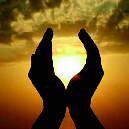In Darkness, Light
Dr. Rajesh Bhola
India
Apr 13, 2012

Every day I come across a number of persons who are leading their lives with
some disability. Amit is one of the children who has cerebral palsy. This
disability restricts his movement, and makes his everyday tasks difficult.
Everyday, he has some pain. Things that most people take for granted—like
reaching out to take something from a cupboard—are very hard, and sometimes
impossible for him. Living with recurring pain is not pleasant. It is very
tiring. It means that Amit has to think of how best to do things; and to
assess how much is reasonable to expect from his body. He has the inevitable
suffering of pain and restriction; and then he has the additional anguish of
embarrassment – which seems to twist inside him. To say that such
embarrassment is psychological, is our conventional way of assessing this; in
fact, this embarrassment and shame is felt in a very physical way. Gradually,
Amit has started attending his vocational and special education classes; started
living with the realities of life, and enjoying some pleasures that are
available to him. As he has reached a greater acceptance of his physical
condition, he has become happier – like a flower opening in the sunshine, after
the storm clouds have passed.
There is no God to call to account. There is no denying it, and there is
no one to blame. Suffering simply is. There is no escape.
While handling such children, the parents undergo a radical change – in how
they live their life, and see the world. This radical change is in a way called
enlightenment. It enables these parents to become socially helpful to others who
are in pain. Such parents are, as destiny wants them to be, in the seat of
the trouble – where the pain is the strongest, the doubt most disturbing, and
the way forward most opaque. Blessedly, this is also the place where
enlightenment breaks through. Lotuses grow only in swamps.

No comments:
Post a Comment